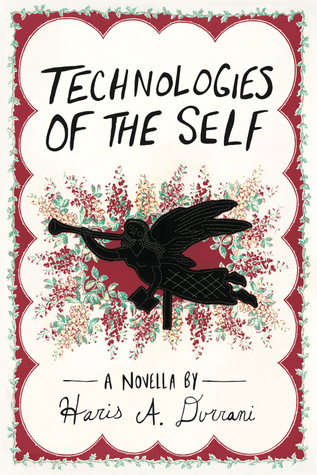Technologies of the Self
Haris A. Durrani
|
|
‘A person’s identity,’ Lebanese-French author Amin Maalouf once wrote, ‘is like a pattern drawn on a tightly stretched parchment. Touch just one part of it, just one allegiance, and the whole person will react, the whole drum will sound.’
It was these words that came to mind as I finished reading Haris A. Durrani’s intriguing debut novella, Technologies of the Self: a shrewd commentary on identity and culture that masquerades so well as something else that by the time you finish reading you almost feel hoodwinked. The story begins as a classic immigrant family drama, complete with amusing observations on life as a western millennial born to parents from differing and more traditional cultures. However, we are soon ushered seamlessly from the smell of plátanos and the rapid, witty dialogue of family members around the dining table, into some of the broader themes that are explored. The protagonist is a young American Muslim who wrestles to reconcile the varying influences of family, faith and place. Son to a Pakistani father and Dominican mother, Jihad – or, to his Caucasian counterparts, ‘Joe’ – journeys through his own memories and those of his family as he seeks to examine the immigrant experience and understand himself in relation to it. The narrative sweeps deftly from past to present like a Terrence Malick movie, dipping briefly into the earlier lives of parents, grandparents and an especially eccentric uncle to show how identity can be shaped by hidden histories in ways we’re not always able to fathom. It’s here that the novella is at its most impressive, showing the beauty and difficulty of the second-generation immigrant experience. Culture, for the diasporic, is refracted, parsed by the decoupling of place from heritage, ‘Joe’ from ‘Jihad’, and the tension that ensues between the two. The labour and joy of living through multiple identities – Pakistani, Dominican, American, Muslim – and the struggle to create a self built from the influences they each confer, are portrayed with nuance and wit. As are Jihad’s memories of a white American ex-girlfriend, showing the estrangement there can be with those who’ve not known a similar struggle. What’s especially refreshing about Durrani’s novella is that he writes about faith, as opposed to religion, resisting the urge – as seen in works like Tahmima Anam’s The Good Muslim – to critique what Islam is, and choosing instead to show what Islam is to the protagonist. We get to glimpse the experience of faith from its interior, rather than the more po-faced and austere view we’re often afforded from the outside. The book’s only minor shortcoming is an occasional sparseness to the scenes set in the present day. At times, locations can feel sketchy, and Jihad’s family members, other than the mysterious Uncle Tomás, little more than disembodied voices hovering at the edges of the frequent reminiscences that form the story’s spine. But in truth this hardly impedes the enjoyment, and with the vivid sense of place and time Durrani gives to the past, you can’t help but think the occasional sparseness is perhaps deliberate, blurring the lines between memory and reality to highlight how porous the levees between them often are. However, what really sets Technologies of the Self apart is the surrealism of Uncle Tomás’ memories as he recalls his experiences of settling in 1960s New York as a child. The recollections are suffused with haunting yet darkly comic encounters with a demonic ghost-like figure in the guise of Santiago, the patron saint of Spain whose icons and miniatures are ‘a household staple for many Dominicans.’ And it’s here the metaphors and questions abound. Are Tomás’ recollections real? Who, or what, is Santiago really? Spirit? Ghost? Hallucination? Or something else altogether – a figure both mythical and historic, religious and surreal, like folklore incarnate; and like what the heritage of any diaspora often becomes to its offspring, shaping the lives born of it by means both hidden and known. Technologies of the Self is an ingenious examination of the layers that inform identity, and the struggle to shape how its ‘drum will sound’. If you’re a fan of Junot Díaz, or of Chimamanda Ngozi Adichie’s Americanah, you’ll find similar themes covered here with flair and humour, and yet magically packed into far fewer words. Micah Yongo | 9 March 2016 | Media Diversified
|


 Haris A. Durrani
Haris A. Durrani